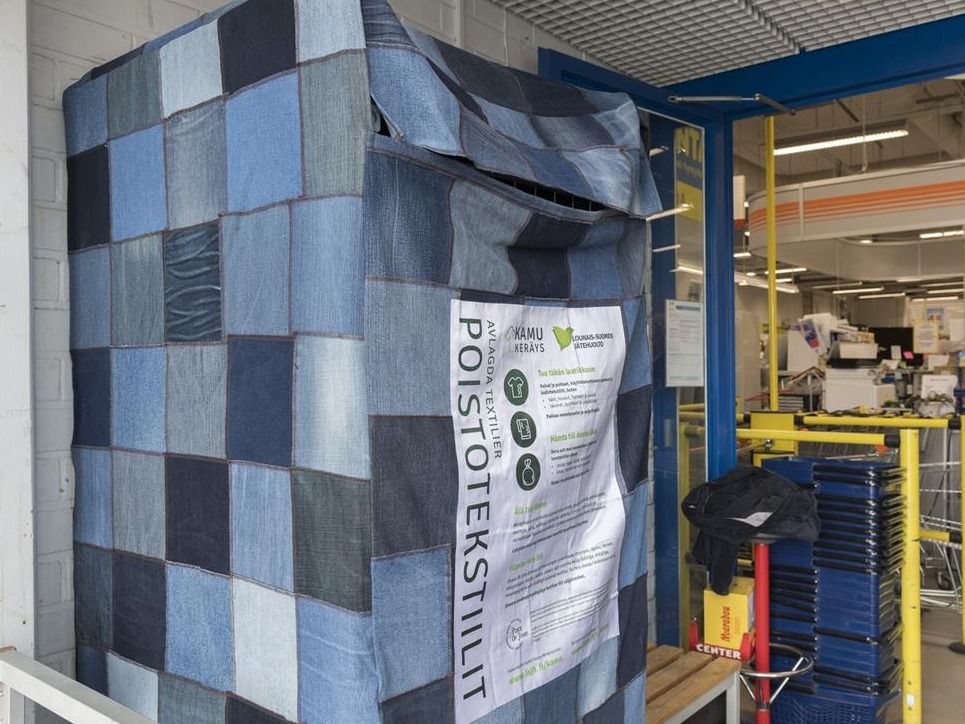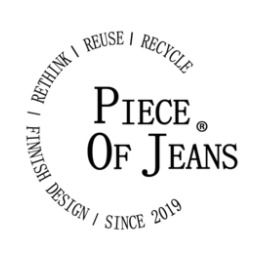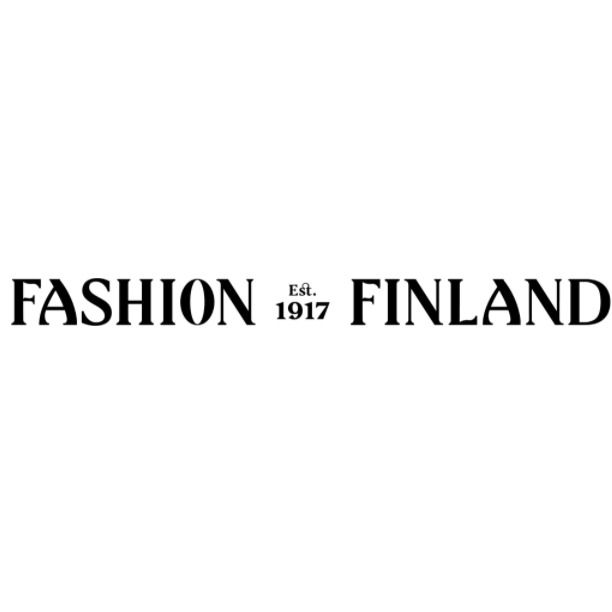Approved by curator

Added: Sep 12, 2021
Last edited: Sep 15, 2021
Launched in 2020 by Lounais-Suomen Jätehuolto (LSJH) and Fashion Finland (FAFI), the KaMu collection project is a trial collection model for end-of-life textiles in southwestern Finland. The project aims to make it easier for residents to participate in textile collection through the provision of centrally located drop-off bins at common shopping and commerce locations. More accessible collection will in turn increase access to end-of-life textiles as an industry resource.
According to Recycling Magazine, Finland produces about 100 million kilograms of textile waste annually. If the textile industry’s ecological footprint is to be significantly reduced, the recovery and reuse of its materials must be pursued as a means of reducing the sector's use and waste of natural resources. Because end-of-life textile collectors and retailers tend to search for recovery solutions on their own, often looking to partners abroad, textile flows in Finland are currently dispersed. This has caused a sufficient volume of material to escape the local recovery/recycling stream. In order to concentrate the national textile waste stream, it is essential that collections be carried out in cooperation with the country's municipal waste management companies.
The KaMu collection is a domestic end-of-life textile collection model headed by Lounais-Suomen Jätehuolyo (LSJH), the waste management organization of Southwest Finland, in collaboration with Fashion Finland (FAFI) and various trade and fashion operators. Launched on May 21st, 2021 in Turku, the project aims to streamline and increase end-of-life textile collection by making drop-off sites more accessible to both households and businesses. Collection bins have been established in shopping centers, flea markets, and textile/apparel stores at which residents and partners can drop off their unusable/unwanted materials free of charge. These collection points have been strategically placed so that individuals may encounter the bins more frequently in their daily lives. Partners are responsible for arranging the collection site spaces and for informing customers about the KaMu collection itself.
The collection sites are held and monitored in indoor areas to minimize the accumulation of other non-textile items, as well as to ensure that the textiles stay dry. Drop-off bins have been accentuated with coverings made from Piece of Jeans denim hats. The collected waste materials are further sorted into their appropriate channels based on quality and then sent for processing. Some of this material is processed at LSJH's Paimio pilot-phase processing line where it is turned into recycled fiber to be used as raw material for new products. A portion of the material is held for small business orders so that they may use it as a resource in their own production lines.
The piloting period has provided insights on collection quantities and ideal collection locations. Following its 6-month pilot period, KaMu is expected to expand end-of-life textile collection nationally by inspiring the implementation of similar models in areas of other municipal waste management companies across Finland.
The KaMu collection has ensured that end-of-life textiles are afforded an additional life cycle and diverted from incineration and/or landfill. Collected materials have been reused/recovered in accordance with the waste hierarchy. The project has developed a best action model that can be implemented on a national scale to normalize residential and commercial textile collection. Such models are to be set up throughout Finland by 2023.
KaMu collection partners include Piece of Jeans, Aura's Treasures, Recycling and shipment store Kellari, Kirppiscenter Länsikeskus and Manhattan, Kirpputori, Länsiykkönen flea, Naantali parish flea, Sokos Wiklund, Vaateapu Karderoopi, and Raspberry Farm Second Hand.




Stretch the lifetime
Use waste as a resource
Maximise lifetime of products after use
Valorise waste streams - open loop
Industry collaboration
Material efficiency
Reusable, recyclable materials and inputs
Open loop collection
Cross-industry projects, pilots
Ecological Impact
Economic Impact
Scalability
Reduce Material Consumption (SDG12)
Minimise Waste (SDG12)
waste management
textile waste management
Clothing collection
textile recycling
collection services
textile collection
textile waste collection
collection program
textile sorting
residential collection
material collection
